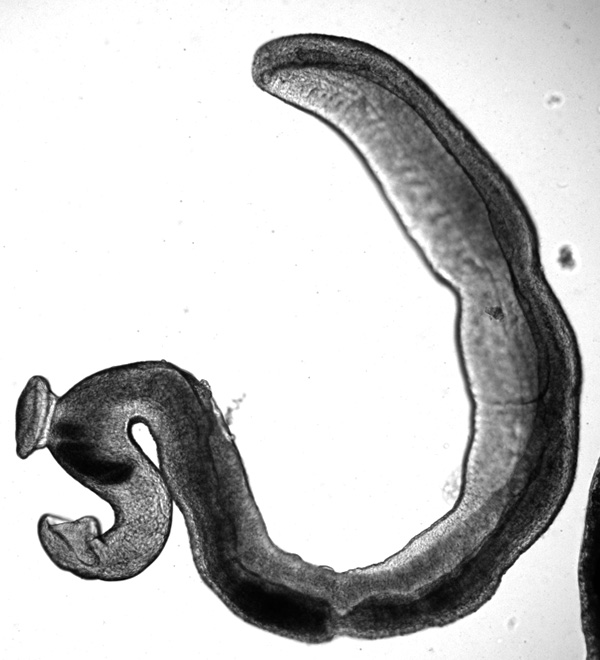Slavery carried parasites from West Africa to the Caribbean
Pioneering genetic research involving scientists from The Royal Veterinary College (RVC), University of London, has confirmed the slave trade imported parasites carrying the bilharzia disease from West Africa to the Caribbean.

photo credit: Gabriel Rinaldi)
Working with researchers from the Wellcome Trust Sanger Institute and Imperial College London, the team used the full DNA sequences of Schistosoma mansoni parasites from Africa and the French Caribbean to discover the fluke’s origins, map its historic transmission and identify the secrets of its success.
Bilharzia, also known as schistosomiasis, is a chronic disease that can cause damage to organs such as the bladder, kidneys and liver. The bilharzia-causing parasite, Schistosoma mansoni, first infected humans as they fished in lakes in East Africa and was spread, first to West Africa and then to the New World by slave traders in 16th- 19th Centuries.
RVC Professor of Parasitic Diseases, Joanne Webster, said: “Comparing the S. mansoni genomes suggests that flukes in West Africa split from their Caribbean counterparts at some point between 1117AD and 1742AD, which overlaps with the time of the 16th-19th Century Atlantic Slave Trade. During this period more than 22,000 African people were transported from West Africa to Guadeloupe by French slave ships, and the fluke was carried with them.”
Read the full Press Release: Slavery carried bilharzia parasites from West Africa to the Caribbean, genomics confirms
Research reference: Crellen T et al. (2016) Whole genome resequencing of the human parasite Schistosoma mansoni reveals population history and effects of selection. Scientific Reports 6: 20954. Doi: 10.1038/srep20954
You may also be interested in:
-
New One Health textbook empowers learners to take integrated approach to address health challenges
A new textbook called Principles of One Health for a better planet, edited by leading researcher …

